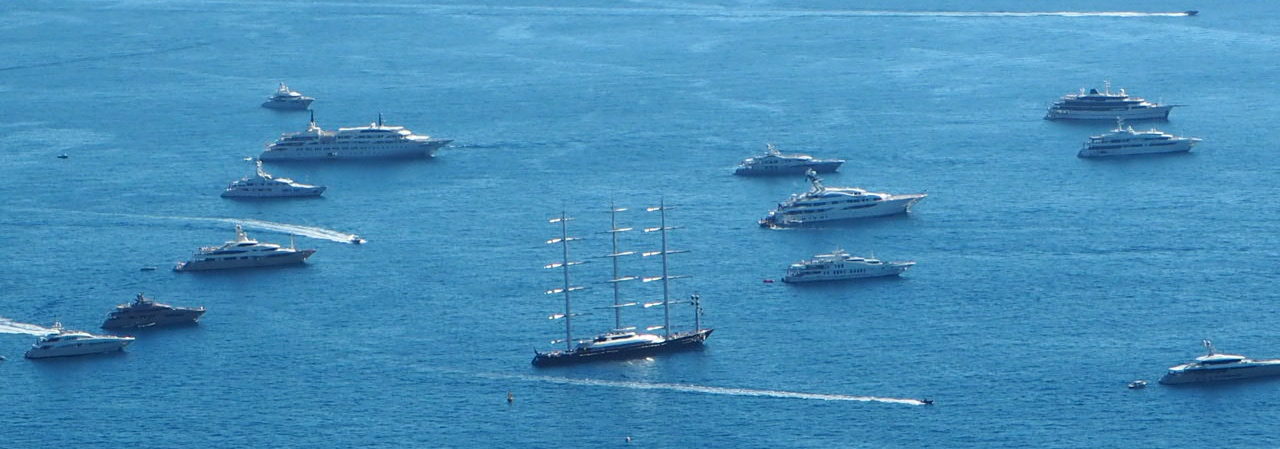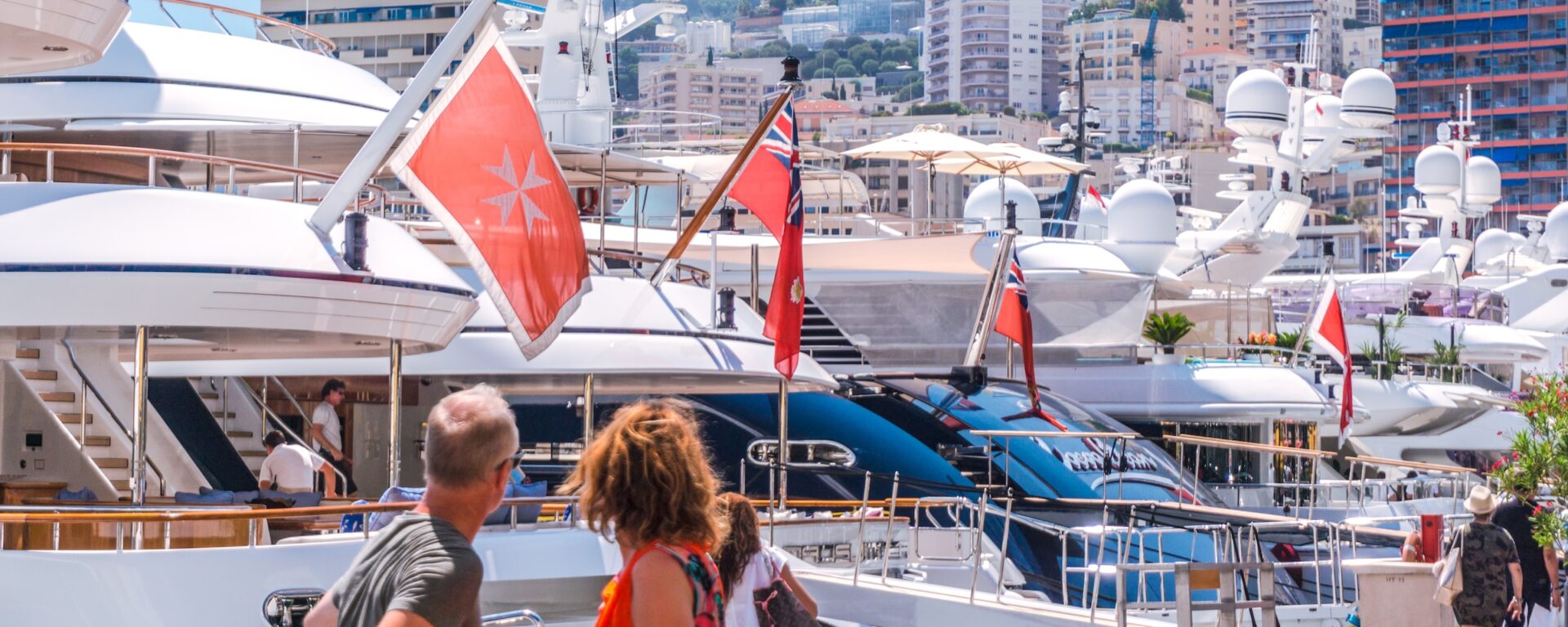As I wrote in my post , one of the most important decisions we have to make is choosing the flag of the yacht. Remember that the flag you choose will have a direct impact on the use of the yacht. I mean – law, taxes, liability and yacht inspections.
It is important for you to realize that a yacht is not just a luxury toy. The purchase of a yacht is associated with a number of legal, tax, financial and technical problems that require careful analysis. This is why choosing a flag state has become one of the most important decisions you have to make as a yacht owner.
Flag State – what is it?
The flag state is the state under whose laws the ship is registered. Mainly it is the country where the owner lives. However, in the world of superyachts, this is a country with optimal regulations to accommodate the complexity of yacht ownership.
The flag state has the authority and responsibility to enforce the regulations for ships registered under its flag. These are the provisions on inspections, certification and issuing documents on safety and prevention of environmental pollution.
Advantages of having a different flag than your country of residence
An owner who intends to operate his vessel as a private yacht may register the vessel in his country. However, it may also choose to use the flag of another country. Such a decision may involve, for example, lenient tax burdens in a given country or confidentiality regarding the ownership of the yacht. Such jurisdictions are countries outside the EU, i.e. offshore.
Offshore flag
Registering a yacht as private under the offshore flag also allows the owner to operate under the regime of temporary importation of the yacht to Europe. In such a situation, the yacht can sail in European waters for up to 18 months, without being subject to customs duties or EU value added tax (VAT INVOICE). After this period, the yacht must leave European waters in order to return later.
Owners who intend to actively charter a yacht in the most popular destinations in the world – in particular the Mediterranean and the Caribbean, will usually choose to flag offshore and register the yacht as a commercial vessel. Importantly, VAT on charters is still payable by the end user – the charterer. However, it is possible for operators of charter companies to account for input tax in the normal business sense. For example, if a company buys food for the duration of the charter, it will pay input tax on the delivery but may deduct it as an operating expense.
Yacht for private or commercial purposes – what flag?
To choose the best flag, you also need to decide whether to register your yacht for private or commercial purposes.
It should be noted that recreational yachts for commercial purposes (i.e. commercial yachts) have to comply with stricter regulations than yachts used exclusively for private use. Private yachts are defined as being used solely for the recreational purposes of their owners and guests. Commercial yachts, on the other hand, are designed to accommodate 12 to 36 passengers maximum. These yachts are subject to more stringent safety requirements.
Owners of such commercial yachts operating in European waters must also appoint tax representatives in the countries where the yachts will be chartered.
White, gray and black flag states
In short, there are good and bad flags for yachts.
It is a wise decision to choose a flag for your yacht from the so-called The „White List” contained in the Paris Memorandum of Understanding on Port State Control . This agreement was concluded in 1982 on a regional port control system for ships of foreign flags calling at their ports. Canada and Russia also belong to this memorandum.
Poland has been a participant and signatory of the agreement since January 1, 1992.
Paris Memorandum
The Paris Memorandum includes 27 participating maritime administrations and covers the waters of European coastal states and the North Atlantic basin from North America to Europe. Its mission is to eliminate the operation of substandard vessels through a harmonized port state control system.
The great role and importance of the Paris MoU for the functioning of the global maritime transport system consists primarily in guaranteeing safe navigation through inspection of the technical condition of ships and training of seafarers. Inspections are carried out in accordance with the requirements of the basic maritime conventions:
- SOLAS – International Convention for the Safety of Life at Sea,
- MARPOL – International Convention for the Prevention of Pollution from Ships,
- STCW – International Convention on Standards of Training, Certification and Watchkeeping for Seafarers,
- MLC – International Maritime Labor Convention.
Each year, the Paris Memorandum Committee conducts over 18,000 individual inspections on Paris MoU vessels and ports. The inspectors verify that ships meet international standards for safety, clean shipping and working conditions.
In 2018, the white list contained 40 entries, the gray list 20 and the black list 10. In 2017, these results were respectively: 42, 19 and 12. Poland is a newcomer to the white list, next to South Korea. France performed best in inspections, followed by the Cayman Islands, the Netherlands, Denmark and the United Kingdom.
The flags on the White List of the Paris Memorandum showed very high scores in these areas. Yachts flying these flags are subject to fewer boardings by officers when entering foreign ports.
Iran, Kazakhstan, Russia and the United States recorded a drop to the gray list. Ukraine was added to the blacklist. Overall, the Republic of Congo performed the worst in controls.
Gray List and Black List Flags have been deemed insufficient and risk more boardings and possible detentions. Until now, yachts had a low priority in inspections by the Port State Control (PSC), but since the Paris Memorandum, this is no longer the case. Therefore, it is important to choose a flag from the White List.
British Red Flag Jurisdictions – popular yacht flag registration options
The political stability and reputation associated with British Red Flag jurisdictions make these jurisdictions a popular choice among yacht owners. In addition to a reputation for efficient management and administration, they also benefit from British consular support which can be useful in manned matters.
British Red Flag jurisdictions are divided into two categories of territories:
- the first category are jurisdictions where it registers yachts of unlimited tonnage, type and length:
- United Kingdom
- Bermuda
- British Virgin Islands
- Cayman Islands
- Gibraltar
- Isle of Man
- the second category are jurisdictions where yachts up to 150 tonnes (GRT) and non-commercial vessels up to 400 GRT are registered:
- Anguilla
- Falkland Islands
- Guernsey
- Jersey
- Montserrat
- St Helena
- Turks & Caicos Islands
UK law is well known to a wide range of boating professionals including skippers, brokers, finance companies, builders, classification societies and service providers in general. So they are used to it and consider it a common and practical system.
However, there are differences in British Red Flag jurisdictions, such as differences in registration fees, or in the requirements that vessels must be within a certain age range to be eligible for registration.
British Red Flag registration also allows you to transfer your registration from one port to another without any additional requirements. This can have significant advantages when the tax status of a vessel changes. For example, a Gibraltar-flagged vessel can be transferred to the Cayman Islands Register by submitting an application to the relevant ship registers, at no additional charge.
Dutch flag
Many people consider the Netherlands to be an ideal location for yacht registration. This is because the country’s regulations are flexible and simple. While most other European countries have stricter laws and regulations. The registration process is quick compared to other countries and the requirements are minimal.
Registering a yacht under the Dutch flag is easiest if you are an EU citizen, Swiss, Norwegian or an EU-registered company owner.
One of the main advantages of the Netherlands is that you can register your yacht under the Dutch flag in just three days. This is why the Netherlands is usually preferred next to countries like Italy, France and Spain, where there is a lengthy registration process in addition to high registration fees. Taxes and registration requirements in the Netherlands are minimal, allowing you to complete the entire process in three days, assuming you meet the necessary criteria.
Yacht owners do not have to be Dutch nationals, nor do they have to be resident in the country. The only documents they need to have is an ID card or passport, and they must document ownership of their boat. Because so little documentation is needed, renewing your yacht registration is also a fairly straightforward process.
Types of yacht registration under the Dutch flag:
- Quick Registration – is for people who want to quickly and easily register and sail in EU waters. With quick registration, you can sail only in the waters of the European Union, and the length of the yacht cannot exceed 24 meters.
- Global Yacht Registration is for yachts that will sail outside EU waters and will sail around the world or be engaged in commercial chartering.
Flag of the Marshall Islands
The Register of Ships in the Marshall Islands was established in 1988. Since 2001, it has also been able to register commercial and private yachts. Thanks to this, the Marshall Islands have become one of the most popular yacht registration destinations in the last dozen or so years.
The Marshall Islands Registry is the third largest in the world and you can enroll in one or three-year programs.
To register a yacht in the Marshall Islands, you must be a citizen or a foreign maritime legal entity of the Marshall Islands. The terms „citizen” and „entity” refer to Marshall Islands corporations, limited liability companies, partnerships, and associations of individuals. So you only need to register a company in the Marshall Islands in your name to be able to register your yacht there.
Assuming you complete all the necessary paperwork and meet all the requirements, you can register your yacht within 24 hours. You can also register your yacht as a „ship under construction” if desired. You can also obtain a US license to operate in US waters as a Marshall Islands registered boat. However, commercial yachts can be chartered in Europe. Registering a yacht in the Marshall Islands does not limit the use of the yacht only in the waters of the Marshall Islands.
The flag of the Marshall Islands is whitelisted by the Paris Memorandum, meaning that the Marshall Islands meet the criteria for low risk vessels under the new Paris Inspection Regime. In addition, the Marshall Islands has been part of the United States Coast Guard Qualship 21 for 11 consecutive years.
Maltese flag
The Maltese Ship Register is the largest in Europe and one of the largest in the world. Malta is one of the most popular countries in the world for registering recreational yachts. It has EU rules, clear rules on yacht mortgages and low registration costs.
Malta has been a member of the European Union since 2004, so registering a yacht comes with the privileges of sailing under the EU flag. Like the other countries mentioned above, Malta is whitelisted by the Paris Memorandum.
If you are an EU, EEA or Swiss citizen, you can register your yacht in your own name. However, if you are a non-EU/EEA/Swiss citizen, the yacht should be owned by a Maltese company or another European company.
Companies that charter yachts outside of Malta are exempt from income tax on any income derived from operating their yachts. They are also VAT exempt. There are no restrictions on the nationality of the captain, officers or crew in Malta.


